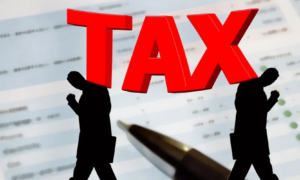The CRA considers a tax return not to have been filed if it hasn’t been submitted by the due date. The deadline for filing tax returns for individual taxpayers is April 30th of each year. The deadline for self-employed people is June 15th, however, any outstanding amounts must be settled by April 30th in order to avoid interest costs. The deadline for filing tax returns for corporations is six months following the end of their fiscal year.
All Canadian citizens and businesses are legally required to file a tax return, and failing to comply can result in harsh penalties. If you haven’t filed a return for a tax year you were required to, speak to a tax lawyer at Taxpage. There are numerous ways to approach the CRA, and an experienced tax lawyer will recommend the one best suited to your situation.
Possible Repercussions of Unfiled Tax Returns
Penalties, interest, late payment fees, and wage garnishment are just a few of the negative effects that can result from unfiled tax returns.
To recover unpaid taxes and penalties, the CRA may also pursue enforcement action.
Late Payment Penalties
Penalties are one of the most common consequences of unfiled tax returns. For each month that a return is late, the CRA assesses a penalty equal to 5% of any balance owing, plus 1% of the balance owing for each full month that the return is late, to a maximum of 12 months.
Furthermore, if the CRA has issued a demand for a return and it is not filed, the penalty can be as much as 10% of the total owed, plus an extra 2% each month for up to 20 months. The penalty for repeat offenders might be substantially harsher.
The interest is compounded daily, and it now stands at 5% annually.
CRA Wage Garnishment
If a taxpayer’s balance remains unpaid, the CRA can instruct their employer to withhold a portion of their wages to pay the tax debt. If the CRA is unable to collect the taxes, they may resort to legal action, such as seizing assets or bank accounts or filing a civil lawsuit against the taxpayer.
Suspension of a Corporate Charter
For businesses with unfiled tax returns, there can be severe consequences, including the suspension of their corporate charter, which can lead to legal liability for the directors and difficulties in obtaining financing or conducting business.
A CRA-Filed Return
The CRA can also file an estimate on a taxpayer’s behalf, called an arbitrary assessment, estimating tax amounts based on income sources and demographic data. Amounts used by the CRA on a return they file are often incorrect and result in the taxpayer being assessed at a higher tax rate than they should have been.
Unfiled returns may also increase the likelihood of being audited by the CRA.
What to do if You Have Unfiled Returns
If you haven’t been contacted by the CRA regarding your outstanding return, speak with a tax professional immediately. You may still qualify for the CRA Voluntary Disclosure Plan (VDP), which provides partial amnesty for qualifying taxpayers.
However, this might not be the best solution in your case, which is why regardless of whether you’ve been contacted by the CRA or not, you must seek advice from a professional regarding your unfiled return immediately. Just because they haven’t contacted you yet, doesn’t mean that they are unaware of your unfiled return and the longer you wait, the more severe the consequences will be.

































